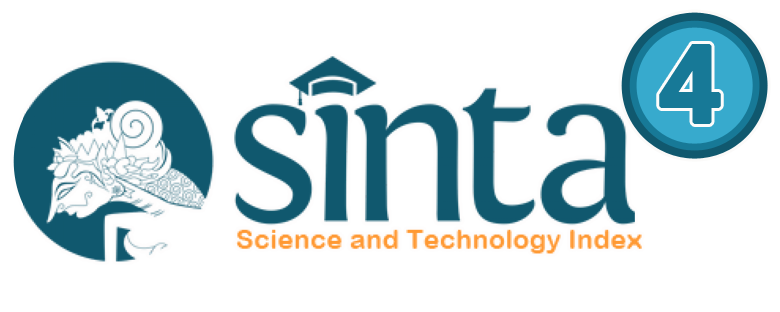The Urgency of Reforming the Death Penalty Policy for Narcotics Distributors Post the Constitutional Court Decision Number 2-3/PUU-V/2007
Abstract
The most questioned severe punishment that can be given for someone is death penalty as with death penalty someone’s existence can be vanished and it is irrevokeable. Since there is no way for turning back the time and brings the life of the person that has already executed. With the establishment of death penalty, Article 28J Paragraph (1) of the 1945 Constitution and Article 29 Paragraph (2) of the Universal Declaration of Human Rights cannot be enforced. Basic Rights directly bind the three areas of state power to obey and respect them. The application of death penalty for narcotics dealers in Indonesia is not only limited to producing legal products, but the implementation of these laws also imposed by the state or the Indonesian government. The issue of whether or not the death penalty is appropriate remains and continues in Indonesia. Nevertheless, The Constitutional Court of the Republic of Indonesia in its decision Number 2—3/PUU-V/2007stated that death penalty is not against Article 28A and Article 28I 1945 Constitution. Hence, the act of distributing narcotics has also violated the human rights of many people in a nation because it can have a devastating impact on future generations of youth. This Normative legal research will be focus on:
1. Whether the constitutional interpretation regarding the death policy for narcotics dealers in the Constitutional Court Decision Number 2—3/PUU-V/2007 according to the review of non-derogable rights?
2. The need to reforms towards the death penalty policy for narcotics dealers in Indonesia?
Keywords
Full Text:
PDFReferences
Afif Hasbullah. (2005). Politik Hukum Ratifikasi Konvensi Ham di Indonesia Upaya Mewujudkan Masyarakat Yang Demoktatis. Lamongan: UNISDA.
Amrani, Hanafi dan Ayu Widyawati. (2017). Urgensi Penjatuhan Pidana Mati terhadap Pelaku Tindak Pidana Narkotika dan Relevansinya Dalam Perspektif Hukum dan Hak Asasi Manusia. Penelitian Kolaborasi. Fakultas Hukum Universitas Islam Indonesia Yogyakarta.
Anugrah, R., Desril, R., & Disemadi, H. S. (2020). “Pidana Mati Terhadap Kejahatan Narkotika Ditinjau dari Pasal 28I Ayat (1) UUDNRI 1945. Jurnal Kertha Wicaksana: Sarana Komunikasi Dosen Dan Mahasiswa.
Apeldoorn, LJ. Van. (2004). Pengantar Ilmu Hukum, Cet.30. Jakarta.
Arfa, N., Nur, S., & Monita, Y. (2020). “Tinjauan Yuridis Penerapan dan Pelaksanaan Hukuman Mati Terhadap Pelaku Tindak Pidana Pengedar Narkotika Berdasarkan Undang-Undang Nomor 35 Tahun 2009 Tentang Narkotika.” Jurnal Sains Sosio Humaniora.
Chazawi, Adami. (2019). Pelajaran Hukum Pidana, Cet.9. Raja Grafindo Persada. Jakarta.
Faiz, Pan Mohamad. 2007. “Hukuman Mati dan Hak Untuk Hidup.” http//jurnalhukum.blangspot.com/2007/05/penelitian-hukumhukuman-mati-dan-hak.html.
Hatta, Muhammad. (2019). Kejahatan Luar Biasa (Extraordinary Crime). Lhokseumawe.
Ikhwanuddin. 2018. “Tinjauan Yuridis tentang Penjatuhan Hukuman Mati Terhadap Perantara Jual Beli Narkotika yang Disertai dengan Pencucian Uang (Studi Putusan Nomor 594/pid.sus/2015/pn.Tjb).” Jurnal Prointegrità.
Lintong, Abraham Mononutu. (2018). Hukuman Mari Di Indonesia Suatu Kajian Etika Kristen, Cet.l, Percikan Hati: Tomohon.
Purnamasari, Galuh Chandra. (2017). “Problematika Penerapan Aturan Pembatasan Hak Asasi Manusia Dalam Konstitusi Indonesia.” Jurnal Hukum Prioris, Vol. 6, No.2.
Putra, Sidharta Praditya Revienda. (2011) Perdebatan Mengenai Pidana Mati Dalam Pembaharuan Hukum Indonesia. Tesis. Fakultas Hukum Universitas Indonesia.
Tanudjaya, Nesia. (2016). Penerapan Pidana Mati dalam Perspektif Pembaharuan Hukum Pidana Indonesia. Tesis. Universitas Bhayangkara Jakarta Raya.
Totomutu, Christofel Brayn Leonard. et.al. “Hukuman Mati Dalam Tindak Pidana Narkotika Ditinjau Dari Perspektif Hak Asasi Manusia (Studi Putusan Mahkamah Konstitusi Nomor 2-3/PUU-V/2007)”, Jurnal Konstruksi Hukum, Volume 2, No.2, Mei 2021.
Sahetapy, J.E. (1979). Ancaman Pidana Mari Terhadap Pembunuhan Berencana. Alumni Bandung: Bandung.
Sembel, N. S. G., Kumendong, W. J., & Waha, C. J. J. (2020). “Penerapan Pidana Mati Terhadap Pengedar Narkotika Ditinjau dari Perspektif Hak Asasi Manusia.” Jurnal Lex Et Societatis.
Suseno, Frans Magnis. (1987). Etika Politik (Prinsip-Prinsip Moral Dasar Kenegaraan Modern). Gramedia, Jakarta.
Wardana, I. W. (2014). “Kebijakan Formulasi Pidana Mati dalam Tindak Pidana Narkotika di Indonesia.: Jurnal IUS Kajian Hukum Dan Keadilan.
DOI: https://doi.org/10.20961/hpe.v11i1.68719
Refbacks
- There are currently no refbacks.
Copyright (c) 2023 indah apriyanti tomas

This work is licensed under a Creative Commons Attribution 4.0 International License.
Jurnal Hukum dan Pembangunan Ekonomi Online ISSN : 2777-0818
|









